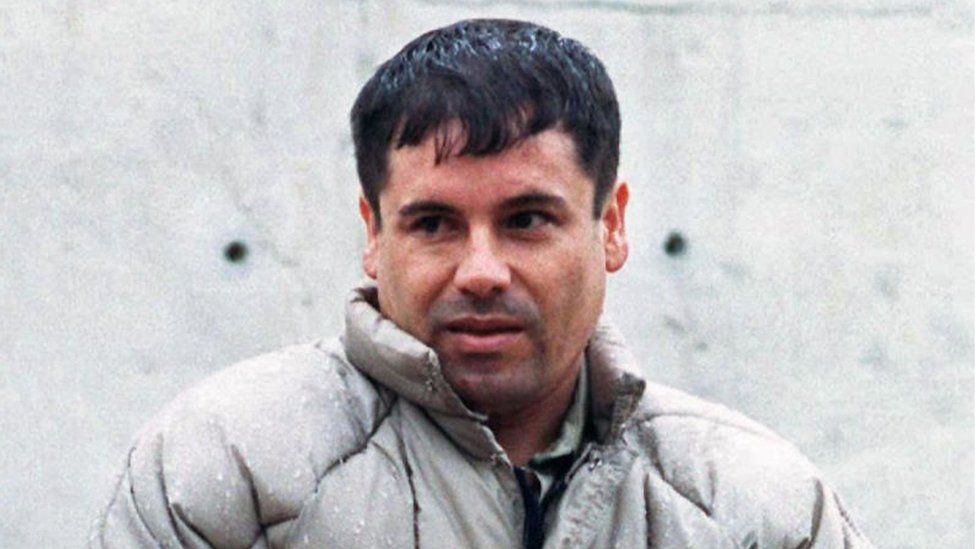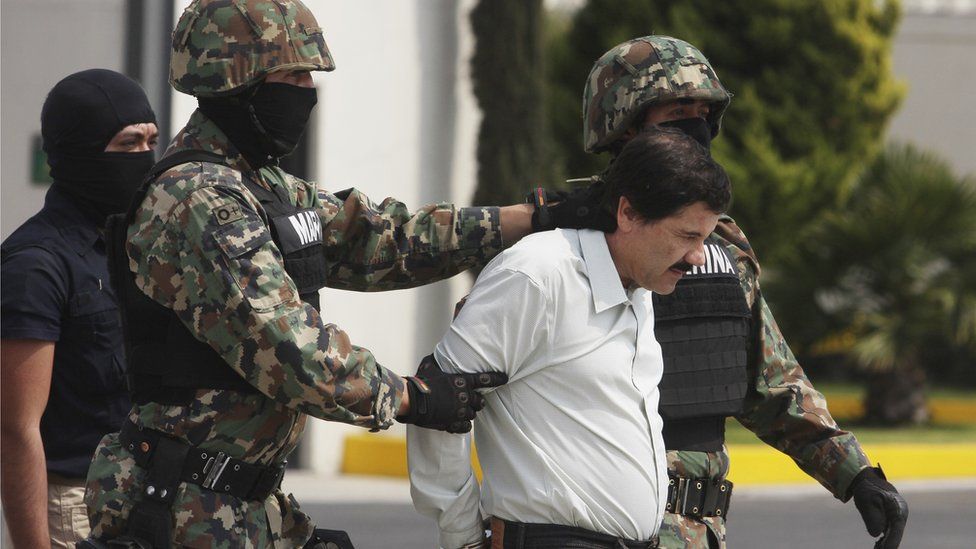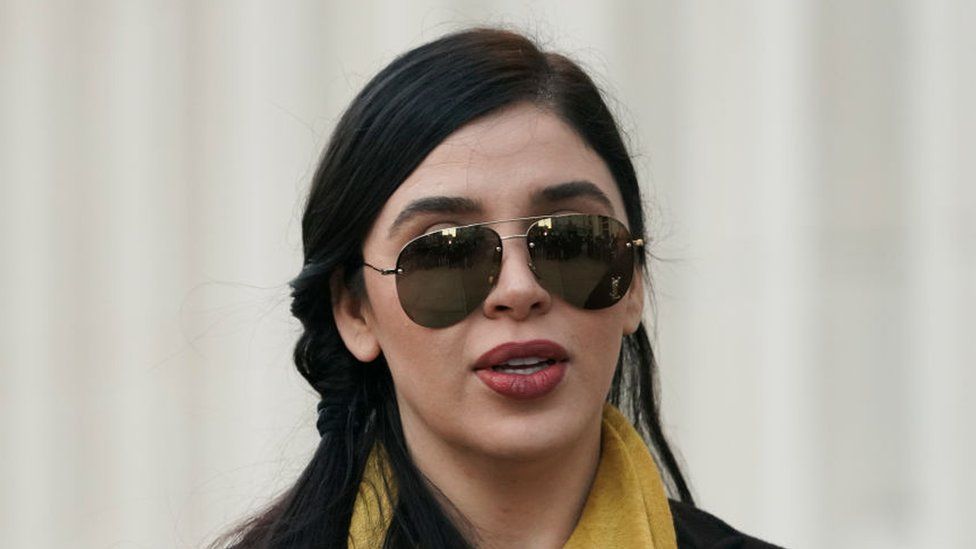Emma Coronel, the wife of jailed Mexican drug lord Joaquín “El Chapo” Guzmán, has been released from jail in the US.
She pleaded guilty to drug trafficking charges and was sentenced to three years in jail in November 2021, a sentence which was later reduced.
The Federal Bureau of Prisons confirmed her release.
It is believed the 34-year-old left a halfway house in California, where she was moved from federal prison in June.
Her husband is serving a life sentence in a supermax jail in Colorado.
Last month, he sent a handwritten letter requesting his wife and their two daughters be allowed to visit him in the maximum security prison.
El Chapo Guzmán, 66, was found guilty in 2019 of running the Sinaloa cartel.
The Mexico-based transnational criminal organisation is estimated by US law enforcement officials to have smuggled more than 1,000 tonnes of cocaine, marijuana, methamphetamines and heroin into the US.

The cartel’s hitmen kidnapped, tortured and killed members of rival gangs to consolidate its power.
The Sinaloa cartel also bribed police officers and high-ranking politicians in Mexico and across Central America to turn a blind eye to drug shipments or even tip the cartel off about impending raids.
Emma Coronel first met Guzmán when she was 17 years old and competing in a local beauty pageant.
Her father, Inés Coronel, was a high-ranking member of the Sinaloa cartel who is currently serving a 10-year sentence in Mexico for drug smuggling.
Guzmán was running the cartel from various hideouts in northern Mexico after he had escaped from prison in a laundry cart in 2001.
They formalised their relationship in a ceremony when Emma Coronel was 18 – although it is not clear if their marriage was ever officially registered with the Mexican authorities.
Coronel, who holds dual US-Mexican nationality, travelled to California in 2011 to give birth to the couple’s twin daughters, a move which means the children have US citizenship.
In 2014, Guzmán was arrested after a 13-year manhunt and sent to the Altiplano maximum security jail in Mexico.
It only took Guzmán 17 months to escape again, this time through a tunnel complete with ventilation shafts and a motorcycle on rails which led from his cell to a nearby warehouse.

At her trial, prosecutors said Coronel had played a key role in her husband’s escape.
She was also accused of having acted as a messenger for her husband both during his time on the run and behind bars, relaying orders to his cartel lieutenants and to his sons with his previous wives, who are known as the Chapitos (Little Chapos).
After his 2015 tunnel escape, Guzmán managed to evade capture for six months before Mexican special forces finally captured him outside Los Mochis, in his home state of Sinaloa.
He was extradited to the US a year later and put on trial in New York.
Coronel made daily appearances in the Brooklyn courtroom.
Immaculately dressed and perfectly groomed, she smiled and waved to him from the public gallery.

She told the New York Times that she did not recognise the gruesome testimony given about her husband in court, instead describing him as “an excellent father, friend, brother, son, partner”.
When Guzmán was found guilty in February 2019, the couple gave each other the thumbs up.
Coronel remained free for almost another two years until her arrest at Dulles airport, near Washington DC, in February 2021.
Prosecutors said she was well aware of her husband’s criminal activities and “understood the scope of the Sinaloa cartel’s drug trafficking”.
She pleaded guilty to drug trafficking and money laundering.
At her sentencing, Coronel asked for leniency for the sake of her children. “I beg you to not allow them to grow up without the presence of a mother,” she told the judge.
She was sentenced to three years in jail which were subsequently reduced, paving the way for today’s release.
Her future plans are unclear, but her husband’s letter pleading for her to be allowed to see him would suggest she may travel to Colorado to visit him.
In the letter, Guzmán says the couple’s daughters, who are now 12 years old, are “studying in Mexico and can only travel to visit their dad during the holidays, two or three times per year at most”.
Source : bbc
















